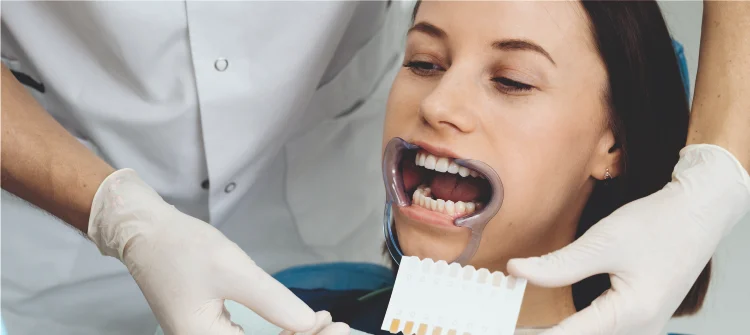6313 Preston Rd #100,
Plano, TX 75024
Most people around the globe avoid dental clinics due to their fear of dental tools and procedures. They only go to the dentist when they have severe problems with their teeth. Dentists, however, can use dental sedatives to calm a patient during dental procedures and even assist them in tolerating complicated operations.
Our dentists in Plano use various types of sedatives to reduce discomfort and anxiety before and during oral surgery and other dental procedures. Many individuals may be familiar with “laughing gas” or have experienced it during crown or filling procedures.
You are not alone; only about 50% of adults visit the dentist regularly, usually out of fear and anxiety. However, there are various types of sedation dentistry in today’s world that can help in this matter. Many dental clinics try to reassure you by providing the following comforts:
Despite this, many people need more help due to the adverse history of dental experience. These types of sedation dentistry can help you relieve anxiety. There are three main methods commonly used to promote dentist visits:
Let us discuss each type of sedation dentistry in more detail.
1. Laughing Gas (Nitrous Oxide)–
Nitrous oxide dental sedative, also known as laughing gas, is administered through a small mask placed in the nose. Time seems to go by faster with the application of this sedative, and you can feel comfortable and happy. It is often called & laughing gas & because of the good humor that most can experience.
Sometimes the arms and legs can feel heavy, and the fingers and toes can
tingle. After your appointment, you will be instructed to breathe pure oxygen for a few minutes. You can drive safely after that because the & laughing gas& dissipates in just a few minutes. Nitrous Oxide or laughing gas will not make you fall asleep or forget things.
Potential benefits-
Possible cons-
2. Oral Conscious Sedation
Conscious oral sedation dentistry involves using medications that are usually taken one hour before you see the dentist. You will need someone to drive you to your appointment because you can not drive back while medicated. Usually, additional medicines can be given in the office, depending on your comfort
level.
The most widely used drugs are benzodiazepines such as Valium and Halcion. Therefore, the patient can sleep during part of the appointment. These medicines may also cause amnesia, so you might rarely remember your dental work.
Your pulse, blood pressure, and respiration will be closely monitored during the procedure. Your escort will take you home and accompany you for a few hours after the operation to ensure your safe recovery. Potential benefits-
Possible deficiencies-
3. Deep sedation
An anesthesiologist or oral surgeon usually provides deep Intravenous sedation in dentistry. This form of dental sedation can completely sedate the patient. You will fall a sleep during the whole process; you will not remember the procedure. Just like conscious sedation, you must travel to and from an appointment by car and have someone watch over you for a few hours while
you recover.
Potential Advantages-
Potential disadvantages
The emotion of every individual experience uniquely. Your mental and psychological state would decide which sedation dentistry is the right choice for you. This heavily depends on your anxiety level, budget, and planned dental
treatment.
The level of your anxiety and what you want to remember and feel will be essential factors in your choice of tranquilizers.
Do you want to fall asleep or relax? If your answer is a sleep & it is best to use deep sedation. If you remember part of the dental appointment, is it okay?
Otherwise, deep sedation will be desirable.
Deep sedation is the most expensive of all types of dental sedation. Dental insurance usually only covers sedatives that involve the removal of wisdom teeth. Therefore, the cost can be a decisive factor. Are you facing economic constraints? Oral sedatives may be preferable.
The degree of sedation may depend on the dental treatment that is required. If you only need minor care, nitrous oxide can be successful. For example, for standard cleaning visits, nitrous oxide is usually sufficient.
If your needs are more complicated or involve surgery, you may need more profound sedation. Dental sedation is safe and rarely causes side effects. However, if you have a health problem sooner, be sure to discuss it with your dentist.
Many people can now smile confidently and eat comfortably after years of neglect, all because of sedation dentistry. Contact our experienced Dentist in Plano to look and feel your best today.